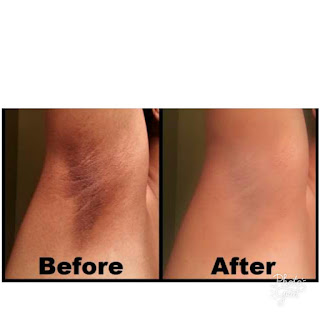Ulcer Symptoms Diet and Natural Remedies
Ulcers are burns that form in the lining of the upper part of the gastrointestinal (GI) tract.
When they occur in the stomach, they are called gastric ulcers. If they form in the first part of your small intestine, the duodenum, they are referred to as duodenal ulcers.
Peptic ulcer disease begins when a weakness in your stomach or intestinal lining allows acid to create an erosion or sore in the lining. It is the most common type of stomach disease, according to the American Gastroenterology Association.
Ulcers are caused by an increase in stomach acid caused by stress, medications, diet, smoking, alcohol, or H. pylori, a type of bad bacteria.
The cause of about 70% ulcers is the overgrowth of Helicobacter pylori. Non-steroidal anti-inflammatory drugs (NSAIDs) such as ibuprofen, naproxen, and aspirin are another major cause as they damage the stomach and intestinal lining.
Ulcer Symptoms
Burning pain is the most common peptic ulcer symptom. The pain is caused by the ulcer and is aggravated by stomach acid coming in contact with the ulcerated area. According to the Mayo Clinic, symptoms of ulcers may:
- Be felt anywhere from your navel up to your breastbone
- Be worse when your stomach is empty
- Flare-up at night
- Often be temporarily relieved by eating certain foods that buffer stomach acid or by taking an acid-reducing medication
- Disappear and then return for a few days or weeks
The Ulcer Diet
Here are the top foods to consume as part of an ulcer diet for fast relief:
Small meals – Eat several meals per day to reduce the burden on the digestive system and relieve ulcer symptoms.
High fiber foods – An increase in fiber can repair ulcers, aim for 30 grams per day.
Green leafy vegetables – These vegetables provide Vitamin K that can help repair damage caused by too much stomach acid.
Cabbage juice – Has been shown to heal ulcers, can be diluted with some carrot juice for additional benefits. Check out this GI healing juice.
Fermented foods. Good bacteria in the gut can help prevent H. pylori infection. Add kimchi, kefir, or unsweetened yogurt to your diet.
High fiber foods – An increase in fiber can repair ulcers, aim for 30 grams per day.
Green leafy vegetables – These vegetables provide Vitamin K that can help repair damage caused by too much stomach acid.
Cabbage juice – Has been shown to heal ulcers, can be diluted with some carrot juice for additional benefits. Check out this GI healing juice.
Fermented foods. Good bacteria in the gut can help prevent H. pylori infection. Add kimchi, kefir, or unsweetened yogurt to your diet.
Ulcer Foods to Avoid
Spicy foods – Can irritate ulcers.
Caffeine – Coffee and certain teas can make ulcers worse.
Alcohol – May actually trigger ulcers.
Any potential allergen – Food allergies can cause ulcers or make them worse.
Sugar – Can feed bad bacteria and make ulcers worse.
Caffeine – Coffee and certain teas can make ulcers worse.
Alcohol – May actually trigger ulcers.
Any potential allergen – Food allergies can cause ulcers or make them worse.
Sugar – Can feed bad bacteria and make ulcers worse.
Top 5 Natural Ulcer Remedies
#1 Licorice root (500 mg before meals)Can help stimulate regeneration of mucus membranes in the stomach and may help inhibit H. pylori.
#2 Aloe vera (1/4 cup 3x daily)
Helps heal the intestinal lining.
Helps heal the intestinal lining.
#3 Probiotics (15 billion live organisms 2x daily)
Helps recolonize the digestive tract with healthy bacteria and prevent infection.
Helps recolonize the digestive tract with healthy bacteria and prevent infection.
#4 Chamomile (1 cup 4x daily)Has a soothing effect on the nerves and can help heal ulcers.
#5 L-glutamine (2g 3x daily)Can help protect and heal the digestive tract.
Essential Oils for Ulcer Relief
Using essential oils of peppermint and frankincense are effective natural remedies for ulcer relief. Add 2 drops of peppermint oil and frankincense oil to your water 2x daily until symptoms are relieved.
From the sound of it, you might think leaky gut only affects the digestive system, but in reality it can affect more. Because Leaky Gut is so common, and such an enigma, I’m offering a free webinar on all things leaky gut.












Comments
Post a Comment